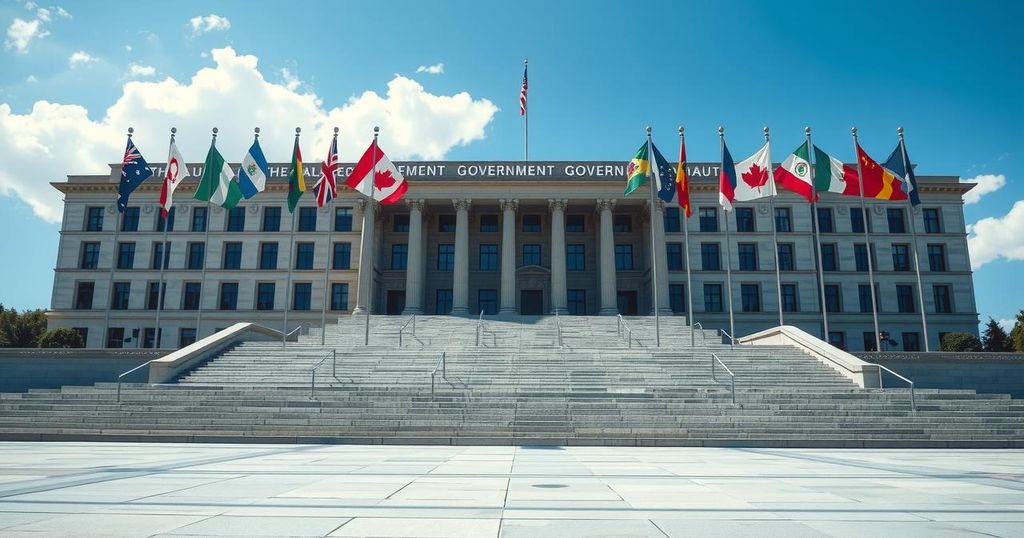Argentina’s government is moving forward with a decree to formalize an IMF programme, potentially providing crucial financial support. Under President Javier Milei, austerity measures have aimed to reduce inflation and fiscal deficits but require additional resources. The proposed extended fund facility could offer $5 billion to $20 billion to settle Treasury debts with the central bank, amidst an existing IMF debt of approximately $44.5 billion. This agreement may influence Milei’s political future as mid-term elections approach.
Argentina’s government is making significant strides to formalize a new International Monetary Fund (IMF) programme by publishing a decree of necessity and urgency (DNU) in the official gazette. This initiative aims to secure essential financial resources that will assist Argentina in meeting its debt obligations and potentially lifting capital controls.
Under the guidance of President Javier Milei, Argentina has implemented stringent austerity measures, which have contributed to reducing fiscal deficits and addressing the country’s rampant triple-digit inflation. However, additional financial support is crucial for sustaining these reforms, particularly as central bank reserves remain negative and substantial debt repayments approach.
The decree highlights the necessity of rapidly diminishing a considerable portion of the National State’s debt to the Central Bank of Argentina (BCRA) to enhance its financial stature and liquidity. The proposed extended fund facility (EFF) involves a repayment period of ten years, including a grace period of 4.5 years. While the decree outlines the allocation of new funds to settle Treasury debt with the BCRA, specific details regarding the programme’s size have not been disclosed. Estimates from financial institutions such as UBS Group AG, Morgan Stanley, and Bank of America Corp. suggest the potential loan could be between $5 billion and $20 billion.
Milei has formally requested lawmakers to endorse the IMF loan agreement, with the decree serving as a vital element of his strategy to facilitate the IMF deal through Congress, indicating an imminent agreement. Argentina’s existing IMF debt, approximately $44.5 billion, originates from a Stand-By Arrangement established in 2018 during a period characterized by significant capital outflows and peso depreciation, with a follow-up EFF deal reached in 2022.
President Milei asserts that the forthcoming IMF agreement will be instrumental in stabilizing the central bank and ultimately eradicating inflation. In an op-ed for La Nacion, he elaborated that funds from the IMF would allow the government to settle debts with the BCRA, targeting a root cause of ongoing inflation. As mid-term legislative elections approach, the new agreement presents a pivotal opportunity for Milei, whose economic strategy and political future might rely heavily on securing the IMF’s backing while managing Argentina’s economic recovery.
In conclusion, Argentina’s government is actively working to formalize an IMF deal that aims to provide essential financial support needed to address its longstanding economic challenges. The implementation of the decree signals the urgency of reducing national debt to the central bank and addressing inflation. As elections approach, President Milei’s political and economic future appears intertwined with the success of this agreement, making it a crucial development for both the administration and the nation.
Original Source: www.bne.eu




